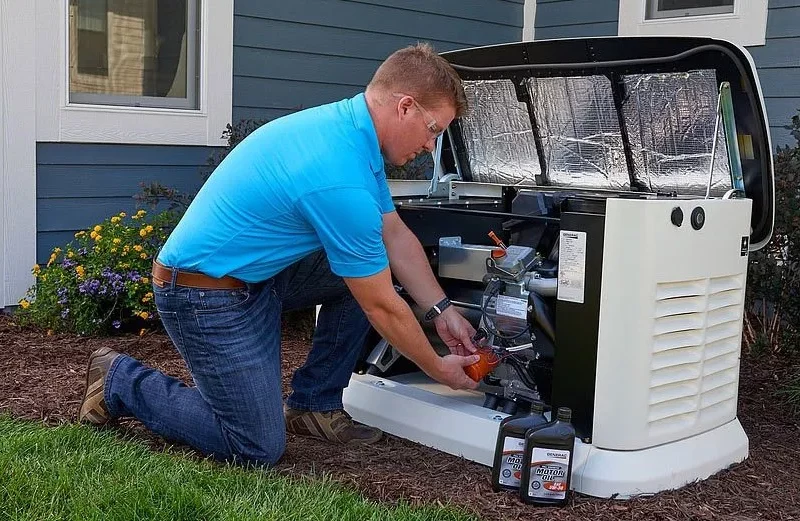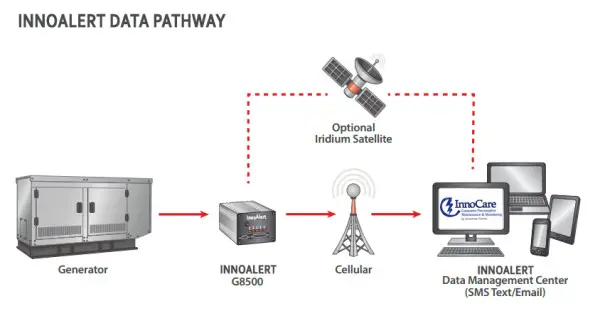In the modern business world, the continuity of power supply is not just a luxury, it’s a necessity. But what’s the best way to ensure that your business never experiences a power outage? Should you invest in a generator or an Uninterruptible Power Supply (UPS)? Let’s delve into the details and find out.
Understanding Generators and UPS Systems
Before we dive into the comparison, it’s crucial to understand what generators and UPS systems are and how they function.
A generator is a device that converts mechanical energy into electrical energy. It’s typically used as a backup power source during power outages. Generators can be powered by various fuels, such as diesel, gasoline, or natural gas. They can provide power for extended periods, but they take some time to start up.
On the other hand, a UPS is an electrical device that provides emergency power to a load when the input power source or main power fails. A UPS differs from an auxiliary or emergency power system or standby generator in that it will provide near-instantaneous protection from input power interruptions, by supplying energy stored in batteries, supercapacitors, or flywheels.
Now that we have a basic understanding of these two power solutions, let’s dive into the comparison.
The Pros and Cons of Generators
Generators have been the traditional choice for backup power for many years. But are they the best choice for your business? Let’s look at the pros and cons.
Pros of Generators:
- Long-term power supply: Generators can provide power for extended periods, making them ideal for long-term power outages. They can keep your business running for days, or even weeks, depending on the fuel supply.
- High power capacity: Generators can handle high power loads, making them suitable for businesses with high power requirements.
- Fuel options: Generators can run on various fuels, providing flexibility in terms of fuel availability and cost.
Cons of Generators:
- Slow start-up time: Generators take time to start up, which can lead to a gap in power supply during a power outage.
- Maintenance: Generators require regular maintenance to ensure they’re in good working condition. This can add to the overall cost of owning a generator.
- Noise and emissions: Generators can be noisy and produce emissions, which can be a concern for businesses located in urban areas or those that are environmentally conscious.
But what about UPS systems? Are they a better choice for your business?
The Pros and Cons of UPS Systems
UPS systems are becoming increasingly popular as a backup power solution. But are they the right choice for your business? Let’s look at the pros and cons.
Pros of UPS Systems:
- Instant power supply: UPS systems provide near-instantaneous power supply during a power outage, ensuring that there’s no interruption in power.
- Power conditioning: UPS systems not only provide backup power, but they also condition the power, protecting your equipment from power surges, voltage spikes, and other power quality issues.
- Quiet operation: Unlike generators, UPS systems operate quietly, making them suitable for office environments.
Cons of UPS Systems:
- Short-term power supply: UPS systems can only provide power for a short period, typically a few minutes to a few hours. This makes them unsuitable for long-term power outages.
- Limited power capacity: UPS systems have a limited power capacity, which means they may not be able to handle high power loads.
- Battery replacement: The batteries in a UPS system need to be replaced periodically, which can add to the overall cost of owning a UPS system.
So, which is the better choice for your business? A generator or a UPS system?
Generator vs. UPS: Which is the Right Choice for Your Business?
The answer to this question depends on your business’s specific needs and circumstances. Here are some questions to consider:
- How long do you need backup power? If you need backup power for extended periods, a generator may be the better choice. But if you only need backup power for a short period, a UPS system may be sufficient.
- What is your power load? If you have a high power load, a generator may be the better choice. But if your power load is low to moderate, a UPS system may be able to handle it.
- What is your tolerance for noise and emissions? If noise and emissions are a concern, a UPS system may be the better choice.
- What is your budget for maintenance and replacement costs? If you have a high budget for maintenance and replacement costs, a generator may be the better choice. But if your budget is low, a UPS system may be more cost-effective.
In some cases, the best solution may be a combination of a generator and a UPS system. The UPS system can provide instant power during a power outage, while the generator can take over once it’s up and running, providing power for an extended period.
Conclusion
In the end, the choice between a generator and a UPS system comes down to your business’s specific needs and circumstances. By considering the pros and cons of each option and asking the right questions, you can make an informed decision that will ensure your business never experiences a power outage.
Remember, the continuity of power supply is not just a luxury, it’s a necessity. So, make the right choice for your business and invest in a reliable backup power solution.




